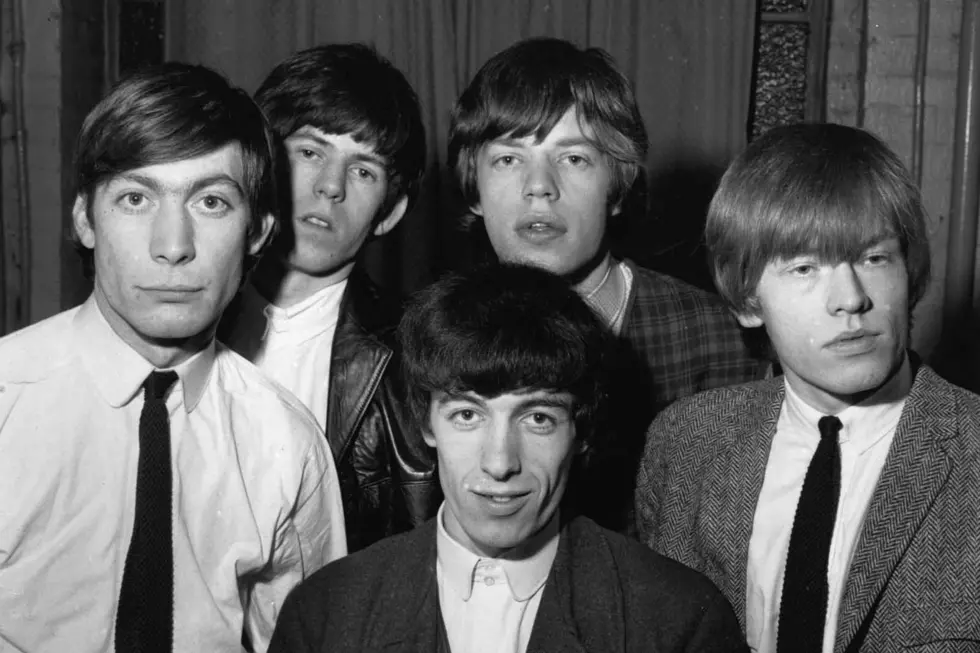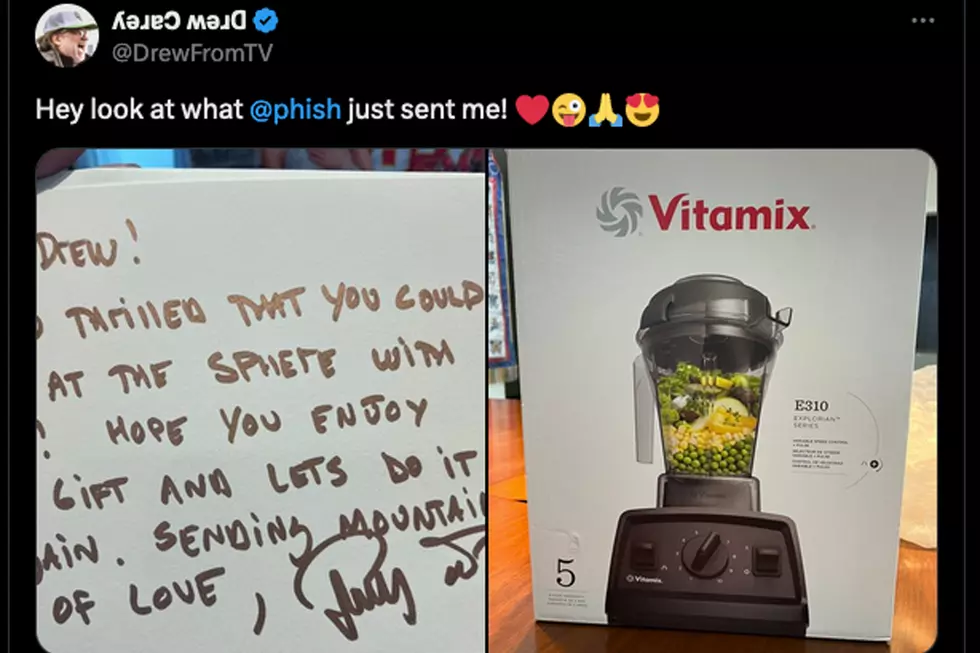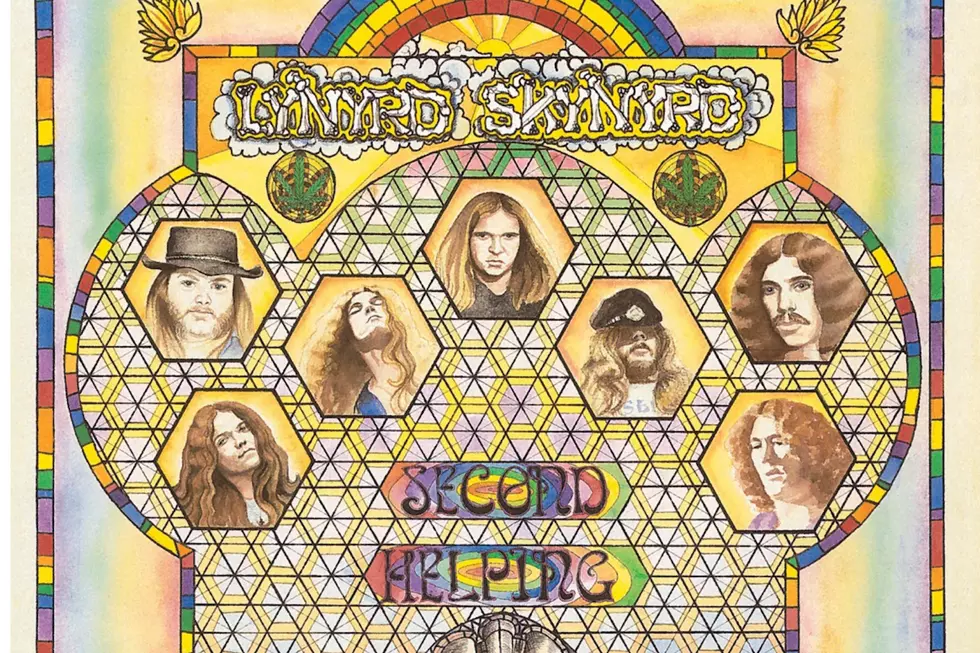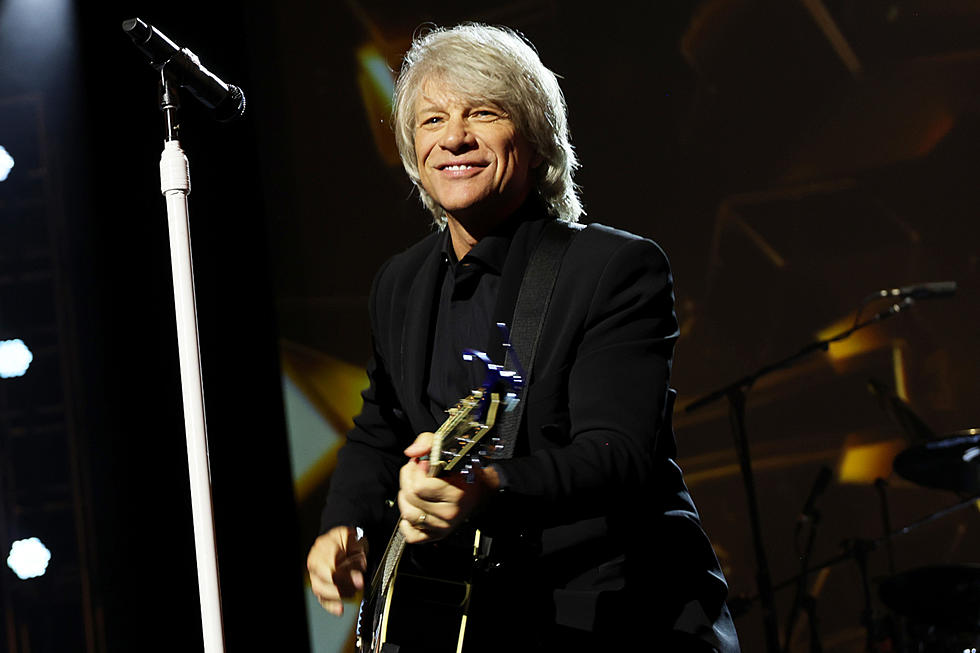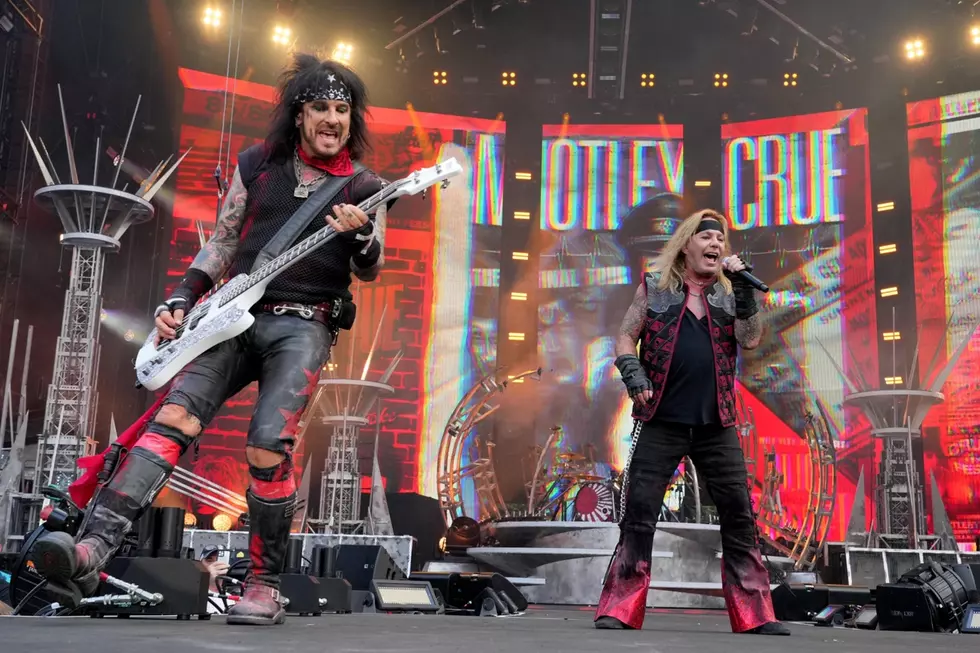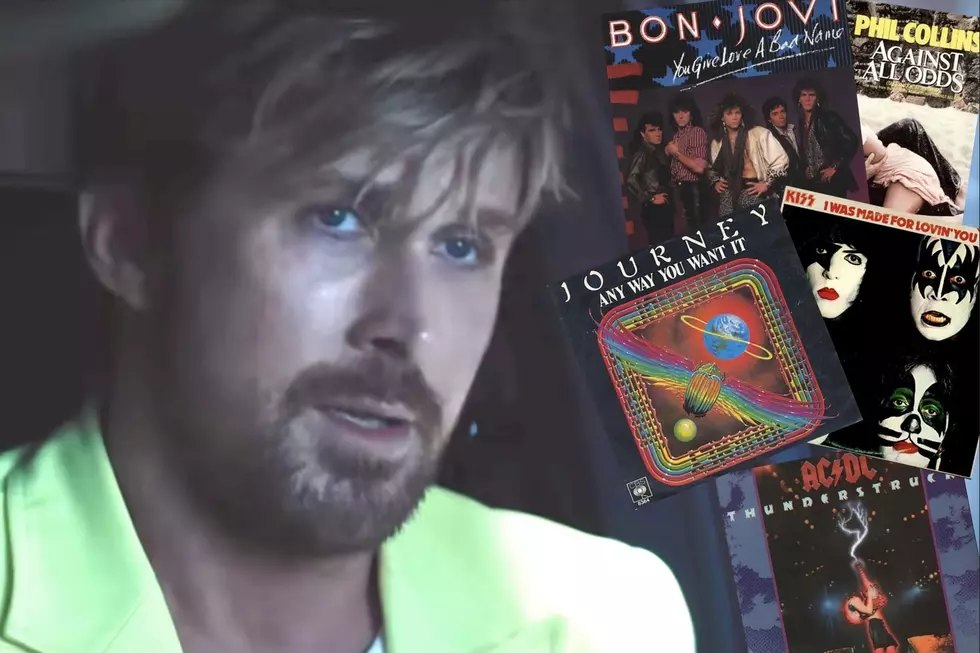35 Years Ago: Little Feat’s Lowell George Era Ends With ‘Down on the Farm’
'Down on the Farm' started as a break up record, with Little Feat trying to complete a seventh studio project despite having little help from co-founder Lowell George. His sudden death transformed the album into something else entirely.
George had, in fact, been at odds for some time with fellow Little Feat co-founder Bill Payne over the direction of the group, which had made its name playing a musical gumbo of rock, soul, funk, boogie, gospel and R&B before turning towards more jazz-influenced styles that didn't suit George. By the time initial work began on 'Down on the Farm,' George was focused on a solo album called 'Thanks I'll Eat It Here' -- and was actually on the road touring separately when he was felled by a massive heart attack on June 29, 1979 at just 34 years old.
Little Feat, quite obviously, was over. But, after a period of mourning, Payne and company regrouped in an effort to complete what would become the last album of the Lowell George era. Released in November 1979, the album proved to be an arduous tribute to what was left of Little Feat, completed in George's unmissable absence.
"It was a very difficult record to complete because of that," Bill Payne told Rhino.com in 2014. 'Down in the Farm' was ultimately finished without much help from drummer Richie Hayward either, and in the midst of planning and presenting a gala benefit to help George's family through this awful time.
"Richie was in the hospital, laid up after yet another motorcycle accident, so he wasn’t there," Payne adds. "We did a benefit for Lowell at what was at the time called the Forum, in Los Angeles, and that money was going to Liz George and the kids. There were just a lot of things going on, and -- I don’t view that record with any particular joy. It’s more sadness, on my part, anyway. But the song 'Down in the Farm,' I love that tune. It’s always been a great tune to play live. It’s just -- I just wish things could’ve been different. But they weren’t."
The results were, perhaps predictably, unfocused -- bringing in some of the sleek atmospherics of 1977's Ted Templeman-produced 'Time Loves a Hero' (notably on the Elton John-ish 'Straight From The Heart'), some throwback rootsy stuff (the title track, 'Perfect Imperfection') and a series of big-name collaborators like Bonnie Raitt and Robben Ford. As hodge-podge as that might sound, however, 'Down on the Farm' nevertheless retains a sentimental place in the hearts of many fans, since it includes some of Lowell George's final work. And the best of the rest -- 'Be One Now' deftly combines the era's soft rock vibe with a gospel tinge, while 'Front Page News' finds George scuffing up a Steely Dan-sounding slice of pop-jazz -- ends up offering a heartbreaking sense of what might have been.
In the end, 'Down on the Farm' didn't just mark George's farewell. Little Feat wouldn't release another original project for some nine years. It seems they couldn't, at least at first, contemplate moving forward without the dynamism George brought to something like 1978's 'Waiting For Columbus,' Little Feat's first official concert release -- and still the band's best-selling album. In that moment, George was a barreling, improvisational wonder, blending influences from across the American musical landscape within a series of singular performances on stage.
Then, he was gone. First, as a producer with the Grateful Dead, on 'Shakedown Street.' (A country-inflected song George co-wrote with Dead keyboardist Keith Godchaux from that project, 'Six Feet of Snow,' would appear as part of 'Down on the Farm.') Then, all together -- as old arguments were revived through the earliest moments of collaboration on Little Feat's new album. Payne quit first, and then George quit, leaving 'Down on the Farm' in shambles.
"After all the back and forth, the group breaks up in February or March," George said in 'Willin’: The Story of Little Feat' by Ben Fong-Torres, even as a solo tour loomed. "The world’s a weird, wild and wonderful place, and it seems to all happen to me. But it’s all okay.”
Payne had wanted to take a larger role in producing. This caused George to recoil, and he seemed to lose himself in endless retakes -- working relentlessly, perhaps, as a kind of distraction. Payne says he tried to talk things through, but to no avail.
"I stepped away from the band; Lowell was still in it," Payne tells Rhino. "I wanted to produce one of our records. I wanted to get involved in the record we were making at the time, which was 'Down on the Farm.' He said, 'No,' and I said, 'Well, I don’t want to be in this band!' And we had a long talk about it, and I kind of gave him a rundown of what I thought he was doing -- not only to the band but to himself and to his family. And to his credit, he allowed me to do that. But shortly thereafter he went out on tour, and that was it. So part of what I felt was, 'God, you’ve got to be very careful what you ask for!' I ended up helping to produce the record -- but without Lowell. And, it was a tough thing to go through."
George's heart attack followed a night of similarly obsessive behavior, when he worked through the night taping a radio show to promote his new solo effort -- having already performed an exhausting concert.
And it's not like George was taking care of himself. "We were driving down the New Jersey Turnpike in this bus and we stopped at this pizza joint off the highway," says Fred Tackett, a guitaring in his solo band who later joined the post-George edition of Little Feat, in a talk with Perfect Sound Forever. "Everybody in the band shared a cheese pizza but Lowell bought a large pizza with everything on it, carried it to the back of the bus, and he ate the entire pizza by himself. He died two or three days later. So, when people ask me, 'What really killed Lowell?' I say, 'It was a pizza on the New Jersey Turnpike.'"
What 'Down on the Farm' might have sounded like, had George fully participated, remains the subject of speculation. Still, it emerged as a modest success, more respectable than triumphal but far from an embarrassment.
Mark Brend, in the book 'Rock and Roll Doctor,' says George phoned three members of the band the day before he died, telling them that he intended to return to Little Feat. “They’re on the shelf, you might say," George said in still-hopeful 1979 interview. "We’ve kind of backed off a little bit. Everybody hates everybody.” Bands, he added, “are always like that. Tell me a group that doesn’t hate each other and I’ll show you a group that’s really bad.”
Maybe that reunion would have led them toward something entirely new, or perhaps back toward their core sound. 'Six Feet of Snow' certainly recalled some of Little Feat's initial country-rock leanings. Instead, we're left with this desperately sad image on the album's inner sleeve of of George -- who wrote or co-wrote five of the nine tracks for 'Down on the Farm,' and was given a co-producing credit by Payne, as well -- walking forever away on a path.
A year later, Payne helped construct the double-album tribute 'Hoy-Hoy!,' featuring additional outtakes, live cuts and a pair of new songs. Then Little Feat fell silent, until reforming in 1988. Payne and Thackett continue today with Paul Barrere, Sam Clayton and Kenny Gradney, a trio of members who joined in 1972. Hayward, who died in 2010 from lung disease, has been replaced by Gabe Ford. 'Rooster Rag,' Little Feat's first album of new material in almost a decade, arrived in 2012.
More From Ultimate Classic Rock


